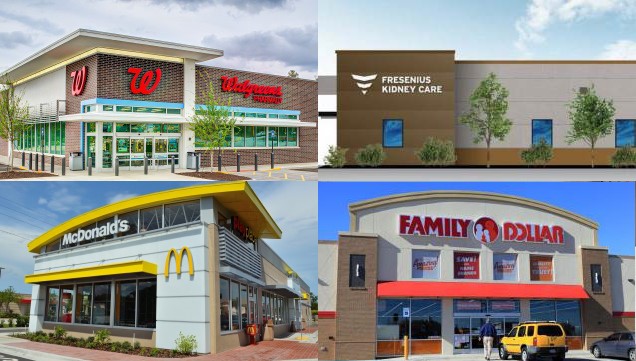
CHICAGO—After a few years of decline, cap rates for the single tenant net lease sector stabilized in 2017, and so far, have remained relatively stable in 2018. In the first quarter, the rates increased for the retail and industrial sectors by just three bps and four bps respectively, according to a new study by the Boulder Group, a net lease firm in Northbrook, IL. Cap rates for net lease office properties remained unchanged. Net lease transaction volume also remained steady, and in 2017 finished at $54 billion which was similar to 2016, according to CoStar.
“The expectation was that cap rates would start to move up slightly in the first quarter and thus the fact that they remained stable was a little surprising,” Randy Blankstein, president of Boulder, tells GlobeSt.com. As noted in a recent national survey conducted by Boulder, most people in the net lease sector believe that cap rates will increase by the end of 2018, largely due to the expected increases in Federal Reserve interest rates.
Jerome Powell, the next Fed chairman, “is expected to continue his predecessor's careful path toward gradually tightening monetary policy,” according to a recent report from Chicago-based LaSalle Investment Management.
Blankstein adds that “while most still believe cap rates will move higher this year the probability for them remaining steady is growing.”
Investors are making some subtle changes to their buying habits. The erosion of brick-and-mortar retail by e-commerce has led many to focus on properties with e-commerce resistant and experiential retail tenants including food, medtail, fitness, entertainment and convenience. Boulder defines medtail as medical properties on sites traditionally used for retail such as shopping center outparcels.
Boulder adds that the net lease sector remains bifurcated between the perceived high quality properties, meaning those with new construction, long term leases, investment grade tenants, and located in major markets, and lower quality properties. However, the supply of high quality properties remains limited, especially ones valued at more than $7 million. And many of the newly-constructed properties have tenants in the dollar store, quick service restaurant and medtail sectors. “However, net lease properties that exhibit positive real estate fundamentals including below market rents, strong store sale histories and positioning in strong retail corridors irrespective of remaining lease term remain a viable alternative for investors looking to achieve higher investment yields.”
Still, Boulder also expects investor demand for this asset class to remain strong, enough to keep 2018 on pace with 2017.
© Touchpoint Markets, All Rights Reserved. Request academic re-use from www.copyright.com. All other uses, submit a request to [email protected]. For more inforrmation visit Asset & Logo Licensing.







